International Conference 紐約國際會議
Neo-totalitarian Turn? Or Any Possibility for Democratization?
会议举办单位为中国民主论坛(主办)、紐約城市大學研究生中心政治系(承办)、北京之春 (承办)。
【主題 中國政治變局與民主前景——正義與邪惡的博弈,國際社會的道義責任和選擇】
--Xi Jinping, Inter-elite Conflict and Societal Resistance in China
【English session on Sunday, Oct. 2, at NYU】
Theme: Democratization in China: Complexity and Prospect
Time: Oct. 2, Sunday, 9:30 am-5:00 pm, New York University (NYU School of Professional Studies, room 321, 7 East 12th street, New York, NY 10003, between 5th Avenue and University Place, at 12th Street)
Funded by the China Democracy Forum; Sponsored by Dr. Veena Thadani, Clinical Associate Professor of Politics at Paul McGhee Division, New York University; Assisted by the Office of Events, NYU School of Professional Studies.
Organizers:
-
∙ •Dr. Ming Xia, Professor of Political Science, the CUNY Graduate Center and the College of Staten Island, Adjunct Professor of the New York University; Contact: MXia@gc.cuny.edu; ming.xia@csi.cuny.edu; Phone: 1-646-660-2835
-
∙ •Mr. Chin Jin, the China Democracy Forum (Australia) and Doctoral Candidate of the University of Sydney.
The whole conference will last for three days, the first session will be held at the New York University (near Union Square) conducted in English, but the last two day session will be held at the Sheraton Hotel, Flushing, Queens, New York. The conference will be attended by more than 50 invited guests from Australia, Taiwan, Hong Kong, Japan, Europe, Canada, U.S. and other participants from the New York
and Washington metropolitan areas.
China is at the crossroads. The ascent of Xi Jinping, his new leadership, and policy have compounded the policy options, its future pathway, and the democratic prospect for an increasingly uncertain China. Since the conference will be a forum for theoretical discussion and assessment as well as practical strategies for social and political movement, it will have two major parts: The English session on Day One for the former and the Chinese session on the following days more for the latter among leading organizers and activists of Chinese democracy movements.
The goal of the conference is to bring together the English-speaking epistemic community and the Chinese-speaking community, the scholars and political activists, theories and social/political movements. This will be the largest conference on this theme during the past five years.
 
1
Conference Theme
Despite a few momentary setbacks in some transitional societies, the wave of democracy has maintained its momentum and kept pounding the remaining autocratic regimes in different forms. No one would doubt that in the 21st century the inevitable democratization of China would be the greatest sociopolitical achievement for the global community. After a century of struggle and exploration for constitutionalism and democracy in China, the Chinese are still being held away from reaching their ideals.
Since Xi Jinping assumed the full control of power in the Chinese communist system, some new developments and paradoxes in political, social, diplomatic and ideological realms warrant careful examination and thoughtful explanation. To understand the complexity of China’s resilient authoritarianism, ideological backtracking, economic turbulence, geopolitical expansion, rising social resistance, and the prelude to more fundamental changes, we have invited three dozen scholars and activists to meet in New York for a three day conference.
The central theme of the conference is that in the process of China’s political transition, what are the possibility, triggers, drivers, patterns, strategies, and prospects of imminent democratic revolution in China?
Suggested Topics:
-
The historical features, evolution, and current characteristics of China’s political system
-
Causal factors, preconditions, and possible future scenarios for China’s political transition
-
The China model of economic development and its relationship with the political crisis and
change.
-
The economic crisis, social crisis, and legitimacy crisis under the Chinese Communist regime.
-
Rights Defense movements, political opposition party, and their roles in political transition
-
Grassroots mobilization, everyday resistance, and the repertoire of strategies
-
The internet and China’s social movements and democratic transition
-
The state-society conflict and the Stability-maintenance regime
-
Reform vs. Revolution, gradualism vs. radicalization?
-
Xi Jinping, His Leadership and Polices, and China’s Transition
-
The “Tibetan problem” and “Xinjiang Uyghur problem” in China’s democratic transition
-
Hong Kong, Macao, and Taiwan in China’s Transition
-
The global waves of democracy and their implications for China’s democratization.
-
China’s democratic transition and its impact upon international relations: nationalism or
democratic peace?
-
Transitional Justice: Human Rights, Historical Lessons and Challenging Issues
2
Program 英文部分會議議程
Sunday, Oct. 2, 2016, 10:00 am-5:00 pm
Opening Ceremony and Session: 10:00-12:00 pm, Chaired by Ming Xia (夏明,Adjunct Professor of New York University, Professor of City University of New York, the Graduate Center and the College of Staten Island)
Welcome Remarks: CHIEN Ta (錢達 former member of the Legislative Yuan, ROC)
Keynote Speech: Arthur Waldron (the Lauder Professor of International Relations at the University of
Pennsylvania)
Speeches by Special Guests:
-
∙ •Enver Jan(One of Founders for Europe East Turkistan Union):“Ilham Tohti Initiative”
-
∙ •Lobsang Nyadak (洛桑念扎 President of the Tibetan Fund)
-
∙ •WANG Juntao (王軍濤 Chairman of the National Committee of the Chinese Democratic Party)
-
∙ •WEI Jingsheng (魏京生 Chairman of The Overseas Chinese Democracy Coalition)
Working Lunch: 12:00-1:00 pm
Session One: 1:00-2:50 pm: After the China Boom, So What?
Chaired by Prof. Peter Kwong (鄺治中)
-
∙ •Ian Buruma (Writer and Luce Professor of Human Rights at Bard College): “China among Autocratic Regimes”
-
∙ •Gordon Chang (章家敦 Columnist for FT, author The Coming Collapse of China): “China's Turbulent Third Era: The Prospects for Democracy”
-
∙ •Ho-fung Hung (孔浩峰 Professor of Sociology, Johns Hopkins University, the Author of The End of China Boom): “Will Authoritarian Regime Survive the Economic Crisis in China?”
-
∙ •Liu Yawei (劉亞偉 Director, China Program at the Carter Center): “The Road of Political Reform in China: 1987 to 2017”
-
∙ •Wang Xueli (雪笠 Editor of Yibao China): “A Rising Trend of Democratic Thinking in Mainland China: Restoring Republic of China Constitutionalism”
3
Session Two: 3:00-4:50 pm: Under Xi Jinping, What Has Been Going On?
Chaired by Mr. Chin Jin (秦晉)
-
∙ •Bhuchung Tsering (布瓊次仁 Vice President of International Campaign for Tibet): " Why Tibet Matters in the Democratization in China"
-
∙ •Yu-Jie Chen (陳玉潔) (Research Scholar, U.S.-Asia Law Institute, NYU School of Law): “Human Rights in Taiwan-China Relations”
-
∙ •Hu Shaohua (胡少華 Associate Professor of Wagner College): "Why China has failed to democratize?"
-
∙ •Peter Kwong (鄺治中 Distinguished Professor, Hunter College and CUNY Graduate Center): “China's Democratic Prospect in the Current Global Environment”
-
∙ •Yeliang Xia (夏业良 Visiting Fellow at Cato Institute and former professor of economics at Beijing University): “China’s Economic Plight and Potential Disorder”
Dinner:
5:30-6:30 pm
4
List of Presenters/Participants (會議人物)
(In the alphabetical order of surnames 以姓氏字母順序排列)
|

|
Arthur Waldron (林蔚) is the Lauder Professor of International Relations, University of Pennsylvania. He received his A.B. in 1971 and his Ph.D in 1981, both from Harvard. He is the author of The Great Wall of China: From History to Myth (Cambridge, 1989), How the Peace Was Lost (Hoover, 1992), and From War to Nationalism: China’s Turning Point 1924-1925 (Cambridge, 1993), as well as editor of or contributor to more than twenty other books.
|
|
 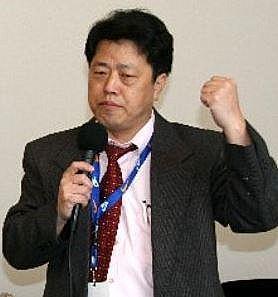 
|
Chien Ta (錢達) is former member of the Legislative Yuan from the New Party, Taiwan; the president of the Alliance for Democratic Progress in China (中華民主 進步同盟主席). He served as the chairman of the first and second Supervision Committee of the Federation for a Democratic China. He received a master’s degree from the University of Texas, Austin and worked for years as an engineer in the U.S. He is the co-director of the China Democracy Forum.中華民國立法院 議員(1996-1999).
|
|

|
Chin Jin (秦晉)is the co-director of the China Democracy Forum (Australia) and a Doctoral Candidate of the University of Sydney. He received a master degree from the Western Sidney University. He went to Australia in 1988 and later joined the Chinese Alliance for Democracy (CAD), (中國民主團結聯盟). He served as a board member in Federation For A Democratic China (FDC) (民主中国 阵线). He authored My Quest for Democracy in China [求索與守望: 中國民運江 湖回望錄, 2012].
|
|

|
Xia Ming (夏明) is an adjunct professor of the New York University and professor of Political Science at the CUNY CSI and the Graduate Center. He received his degrees from Fudan University and Temple University. He is the author of The Dual Developmental State (2000), People’s Congresses and Governance in China (2008), Political Venus (2012), and Empire of the Red Sun (2014). He has been chosen as “Top 100 Chinese Public Intellectuals” for six times. 紐約城市大學研究 生中心博士導師,紐約城市大學斯德頓島學院政治與國際事務教授,紐約大 學兼職教授。
|
5
∙ Special Guests/Speakers (特別嘉賓和報告人)
|

|
Bhuchung Tsering (布瓊次仁) is the Vice President of International Campaign for Tibet. Born in Tibet, he fled to India in 1960. He received his B.A. from the University of Delhi in 1982. He worked as a journalist with Indian Express and later joined the Central Tibetan Administration (CTA). He was the editor of Tibetan Bulletin and served in the Office of H.H. the Dalai Lama in Dharamsala.
|
|

|
Ian Buruma is a writer and Luce Professor of Human Rights at Bard College. Much of his work (about two dozens of books) focuses on the culture of Asia, particularly that of China and Japan. He was the Paul W. Williams Professor of Human Rights and Journalism at Bard College. He is among the 100 top global thinkers of 2010, as selected by the Foreign Policy magazine.
|
|

|
Gordon Chang (章家敦) is a lawyer, commentator and a columnist for FT, author The Coming Collapse of China (2001). He graduated from Cornell University, where he was a member of the Quill and Dagger society, in 1973, and the Cornell Law School in 1976. He also wrote Nuclear Showdown: North Korea Takes On the World (2006).
|
|
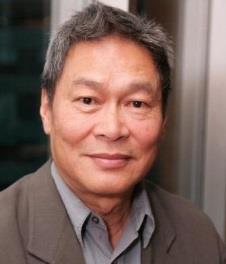
|
Peter Kwong (鄺治中) is a Distinguished Professor of Sociology at the CUNY Hunter College and Graduate Center. A pioneer in Asian American studies, a leading scholar of immigration, and an award-winning journalist and filmmaker of Chinese descent, his books include Chinese America, Chinese Americans (co- authored with his wife Dusanka Miscevic), Forbidden Workers, New Chinatown, and Chinatown. He contributes writings to news outlets and magazines.
|
|

|
Lobsang Nyandak (洛桑念扎) is the Executive Director of the Tibetan Fund. He was the Representative of His Holiness the Dalai Lama to the Americas. He also was a Member of the Assembly of Tibetan People’s Deputies, the Kalon (Minister) in the Central Tibetan Administration, Executive Director of the Tibetan Centre for Human Rights and Democracy.
|
|

|
Wang Juntao (王軍濤) is the Chairman of the National Committee of the Chinese Democratic Party. He took his bachelor’s degree from Beijing University, MPA from Harvard and a Ph.D. in Political Science from Columbia University. He was accused as the “black hand” behind the 1989 Democracy Movement in Beijing. He was also a leading participant in the April 4 Movement, 1979 Democracy Movement, the Charter 08 Movement.
|
|

|
Wei Jingsheng (魏京生) is the Chairman of The Overseas Chinese Democracy Coalition. His involvement in the Chinese democracy movement earned him a total of 18 years in prison as well as global recognitions: the Sakharov Prize, the Robert F. Kennedy Human Rights Award, the NED Award, and one of the 15 Champions of World Democracy by the magazine A Different View.
|
6
|

|
Yu-jie Chen (陳玉潔) is a Research Scholar at the U.S.-Asia Law Institute, NYU School of Law. She received her LLM from, was awarded the Robert L. Bernstein Fellowship and is a JSD candidate at NYU School of Law. She also holds an LLM and LLB with honors from National Chengchi University in Taiwan. She is also a lawyer who has practiced in the Taipei-based international law firm Lee and Li.
|
|
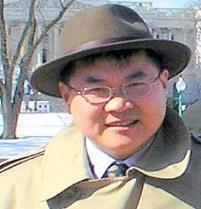
|
Shaohua Hu (胡少華) is an Associate Professor of Political Science, former chairman of the Department of Political Science, and the Coordinator of International Affairs Program at Wagner College. He graduated from Beijing University, studied for his MA and worked at the CASS. He was a Visiting Senior Research Fellow at EAI of NUS. He is the author of Explaining Chinese Democratization (2000).
|
|
 
|

Ho-fung Hung (孔浩峰) (BA, CUHK; MA, SUNY-Binghamton; Ph.D., Johns Hopkins) is the Henry M. Elizabeth P. Wiesenfeld Associate Professor in Political Economy at Johns Hopkins University. He is the author of the award-winning book The China Boom and Protest with Chinese Characteristics, both from Columbia University Press. He also taught at the Indiana University-Bloomington.
|
|

|
Enver Janis one of the founders and the chairman for Europe East Turkestan Union. He lived in exile in Turkey with his parents who fled East Turkestan in the 1950s. He once worked for the Radio Free Europe at Munich and now lives in Germany. He actively participated in creating the World Uighur Congress campaign. Now he is the representative for the Ilham Tohti Initiative in Europe.
|
|
 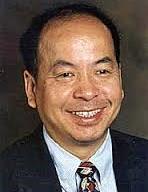
|
Liu Yawei (劉亞偉) is the Director of China Program at the Carter Center, associate director of the China Research Center at Atlanta and adjunct professor at Emory University. He has edited three edited book series: "Rural Election and Governance in Contemporary China", "The Political Readers", and "Elections & Governance" in China. He is the founder and editor of www.chinaelections.org.

|
|
 
|
Wang Xueli (王雪笠) is the Editor of Yibao China of the China Initiative. She is a leading voice for the Restoration Movement of the Republic of China in the Mainland. She is also active in the efforts to preserve the archives of June 4th massacre by applying for the listing of the UN World Cultural Heritages.
|
|
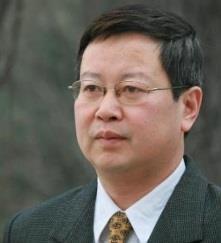
|
Xia Yeliang (夏業良) is a visiting Research fellow at Cato Institute and former professor of economics at Beijing University. He is the founder of the Cathay Institute of Public Affairs, a liberal-market think tank in China. He earned an MA and a PhD in economics from Fudan University in Shanghai in 1996 and 2000, respectively. He was a visiting scholar at Stanford, Wellesley, UC-Berkeley, and UCLA.
|
7
第二天 〈10 月 3 日〉:喜来登酒店第七層樓會議廳 0900 – 1100 大會演讲 主題:當下中國政治本質(會議工作語言 中文) 每一位發言人時間為 15 分鐘。
主持人 秦晉
魏京生:中国变局的几种可能性
陈破空 :如果川普當選,對中國意味著什麼? 贡噶扎西 : 中間道路—藏人的訴求
阎淮: 中国民主化展望
胡平: 民运如何再出发
1100 - 1115 茶敘
1115 - 1300 大會討論 主題:習近平的政變 每一位發言人時間為 15 分鐘。 主持人: 钱达
罗宇: 習近平與中國政治前景 黄慈萍:从林彪的政变谈政治与经济险象丛生的今日中国 盛雪:習近平:中共體制的終結者
草庵: 习近平的中国梦 王澄:中国社会的落后性决定一切
1300 - 1400 午餐
8
1330 -1430 Special Speech 特比會議: 以美國華人本土參政促進中國民主進步,演講人:唐蓉(Lily Tang Williams, 科羅拉多州自由黨美國國會參議員候選人)
主持人:夏明
1400– 1545 大會討論 主題:中共面臨的經濟危機、社會危機與合法性危機 每一位發言人時間為 10-15 分鐘。
主持人: 王军涛
项小吉: 启蒙与行动 洪哲勝:最優變局:是什麽?為何?怎麼辦? 遇罗文: 中国一定会发生革命,革命不会带来大乱 張菁: 開放二胎是否改善中國婦幼人權狀況 葛彦松:经济危局下的民主变局 冯胜平:歷史是合力的產物 其他發言:高光俊、韩武、 李劼
1545 - 1600 茶敘
1600 - 1800 大會討論 主题:中國政治轉型的多重思考 每一位發言人時間為 5-10 分鐘。 主持人: 葉寧
伊利夏提 :东突厥斯坦的历史地位 姚誠:中國民主轉型的軍事準備
9
北風:互聯網能否成為政治和社會運動策源地? 李東澄:不知中國國學,何以為中國民運 倪育贤: 关于改革民运运作方式的意见
王军涛 :民主轉型的動力機制與民運的定位 其他發言:汪岷、王希哲、魏泉宝、羊子
1800 - 2000 晚 餐
第三天 〈10 月 4 日〉喜来登酒店第七層樓會議廳
0900 – 1045 大會討論 主題:中國民主法治進程 每一位發言人時間為 10-15 分鐘。 主持人 呂京花
滕彪: “中国的政治反对运动与维权运动” 趙岩:在美國進行中國公民維權抗爭 李煥君:我在美國維權的經歷
陈小平: “法治夢”的破滅
李進進:夏霖案的法律分析 秦伟平:《中国危机路线图》与新媒体时代的抗争策略 劉因全:中国应该建立四权制衡的宪政民主制度
1045 - 1100 茶敘
10
1100 – 1230 大會討論
主題:地方自治與多元民主
每一位發言人時間為 10-15 分鐘,建議演講時間 10 分鐘,5 分鐘接受提問。 主持人: 汪岷
葉寧:強力開啟以非常規形態為鬥爭內容的民主革命時代 唐元雋:民主运动中的新思维方式和策略
任畹町: 中共“百年战略”对民主化前景、对两岸四方的影响与制约 (書面發言) 石宇歌: 《梦国中出逃》——中国大陆文化疯狂逃出中国梦现状分析 錢志健:香港佔中和傘花革命(暫定題目) 其他自由發言:毕汝谐、付申奇、付申平
1230 - 1430 午餐 放映陽光衛視紀錄片《烏坎》(製片人:陳平)和討論 主持人:蔡世雯
討論人:姚誠及烏坎特邀嘉賓
1430 – 1600 大會討論 主題:国际社会对中国政治民主化的作用与影响 主持人 李進進
李偉東: 中國時局讀解
何頻: 誰決定中國這場變局? 張博樹:“紅色帝國”的外交政策
彭涛: 中國政治發展及國際關係現狀與中國民主化 陈奎德:中國民主轉型的國際條件 夏業良:“促变与顺势而为”
11
其他發言:蔡桂华、李洪宽、易改 1600 – 1645 大会闭幕
主持人 钱达
書面發言(Paper Submitted)
任畹町: 中共“百年战略”对民主化前景及对两岸四方的影响与制约 王康:汲取歷史教訓,遏止帝國“元首” 徐文立:中國的變局與破局 楊建利:中国的民主:失去的机遇和新的前景
|
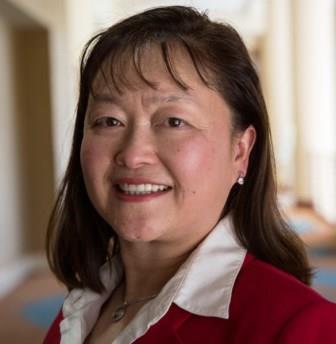
|
Lily Tang Williams (唐蓉) is the candidate for U.S. Senate on the ballot from the Libertarian Party of Colorado in 2016. State Director of Our America Initiative, Former Chair The Libertarian Party of Colorado. Lily received her university law degree at Fudan University in Shanghai, came to the U.S. in 1988, and earned a Master's degree of social work at the University of Texas (Austin). Facebook page: lily4liberty.唐蓉來自成都, 畢業於復旦大學法律系,並留校任教。1988 年來美留學,獲得得克薩 斯大學奧斯汀分校社會工作碩士學位。曾任職於公司、做商人、參與 政治運動。現是科羅拉多州自由黨提名的參選美國國會參議院的候選 人。
|
|

|
Luo Yu (羅宇) is the second son of Luo Ruiqing, a founding general of the PRC. He served in the Central General Staff and stayed in France after the 1989 Tiananmen massacre. He is the author of Farewell, the General Staff (《告別總參謀部》, 2015), his memoir. He has been an outspoken advocate for political reform, human rights protection and democratization in China. 羅宇是中共開國大將羅瑞卿的二子,曾在解放軍總參謀部任 職。1989 年在法國正值中國北京天安門屠殺,決定拒絕歸國。2012 年 由香港開放出版社出版他的回憶錄《告別總參謀部》一書。現在經常發 文推動中國的政治改革、民主化和自由人權事業。
|
12
∙ List of Speakers and participants (中文部分演講人和與會者)
|

|
Bi Ruxie (畢汝諧)僑居 紐約作家。New York-based Chinese writer.
|

|
Cai Shiwen (蔡世雯), translator . 英語學士,傳播學 碩士,同聲傳譯。
|
|
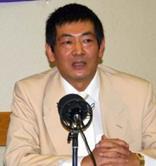
|
Cao An (草蓭 Writer and Commentator)作家和政論 時評人士。
|

|
Chen Kuide (陳奎德 Editor of China in Perspective; Chairman of Princeton China Initiative)普 林斯頓中國學社主任。
|
|
  
|
Chen Xiaoping (陳小平 Editor-in-chief of the Mirror Publishing Company)明鏡出 版社總編輯。
|
  
|
Chen Pokong (陳破空 Writer and Columnist, author of Thick and Black in Zhongnanhai)時事 評論家,《中南海厚黑學》 作者。
|
|
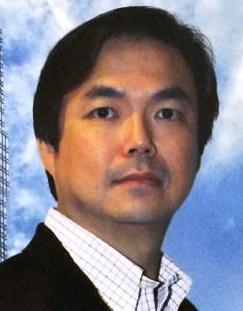
|
Edward Chin (錢志健) investment manager and leading activist in Occupy Central movement.香港投 資管理人,佔中運動領軍 人物。
|

|
Feng Shengping (馮勝平 Political activist),政治活躍人 士。
|
|
 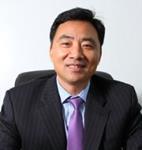
|
Gao Guangjun (高光俊 Attorney),紐約職業律師.
|
 
|
Ge Yansong (葛彥松)is an economist. 青年经济学者,长 期从事金融投资与经济研究 工作.
|
|
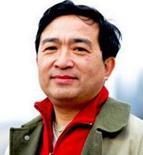
|
Ho Pin (何頻 Chairman of the Mirror Publishing Group)明鏡出版集團董事 長,媒體人。
|
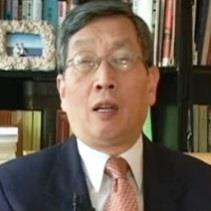
|
Hu Ping (胡平)Honorary Editor of Beijing Spring, author of The Thought Remodeling Campaign of the Chinese Communist Party State)《北京 之春》榮譽主編。
|
|

|
Huang Ciping (黃慈萍 Wei Jingsheng Foundation)魏京 生基金會負責人。
|
 
|
Cary Hung (洪哲勝 President of Asia Democracy Foundation) 亞洲民主化基金會董事長。
|
13
|

|
Ilshat Hassan Kokbore (伊利 夏提 President of the Uyghur American Association)
|
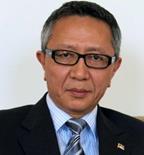
|
Kunga Tashi (貢嘎扎西 Chinese Liaison Officer of the Office of Tibet)西藏行政中央 美國辦事處華人事務聯絡 官。
|
|
  
|
Li Dongcheng (李東 澄),founder of the Chinese Green Party 中國綠 黨創建人。
|
 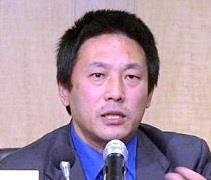 
|
Li Hongkuan (李洪寬 Editor of Big Reference magazine)《大 參考》創辦人。
|
|

|
Li Huanjun (李煥君 Human Rights activist)旅居美國的 維權人士。
|

|
Li Jie (李劼 Writer)居住在紐約 的作家。
|
|

|
Li Jinjin (李進進 Attorney)紐 約執業律師,是李進進律 師事務所合夥人。
|
 
|
Li Weidong (李偉東 former editor of Forum of Reform in China)網名冬眠熊,時政評論 家。
|
|

|
Liu Yinquan(劉因全) Chairman of China Social Democratic Party.中國社會 民主黨主席。
|
 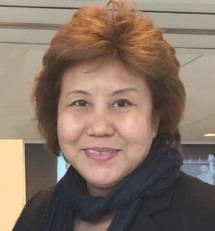 
|
Lu Jinghua(呂京花)Political activist, leading member in democracy movement 北京 89 民運工運領導人,中國海外 民運活動家。
|
|
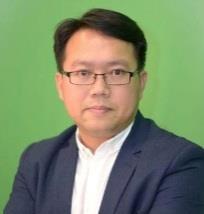
|
Qin Weiping (秦偉平) Host for Ping Comment TV program and Chairman of the Youth Council of Chinese Democratic Party。 经济学者,中青会会长。
|
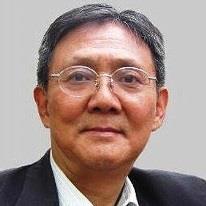
|
Ren Wanding (任畹町)

founder of the China Human

Rights League. 著名人權活動

家。
|
|

|
Shen Xue (盛雪 Writer and President of the Federation for a Democratic China)作 家,民陣主席。
|
 
|
Shi Yuge (石宇歌)journalist and writer 記者和作家。
|
|

|
Song Shuyuan (宋書元) 北京 89 民運“飛虎隊”成 員,中國民主黨骨幹。 Worker participant in 89 Democracy Movement.
|
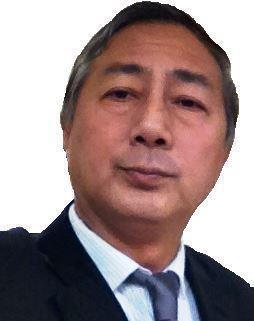
|
Tang Yuanjun (唐元雋 President of the Federation for a Democratic China, USA and China Democracy Party Eastern US Headquarters)中国民主党 和民主中国阵线地区负责人
|
14
|

|
Teng Biao (滕彪 Visiting Fellow of the Institute for Advanced Studies at Princeton University and NYU Law School and Defense Lawyer)維權律師
|

|
Wang Tiancheng (王天成 former lecturer of Law School, Beijing University and the author of The Great Democratic Transformation)前 北大法學院講師。
|
|
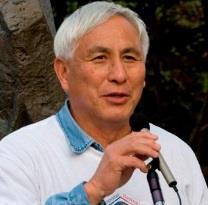 
|
Wang Xizhe (王希哲 Political activist and writer) 政治評論家。
|
 
|
William Cheng Wang (王澄 Medical Doctor, Political Activist)紐約執業醫生,中國 民主黨運動骨幹。
|
|

|
Wei Quanbao (魏泉宝) political activist,紐約民運 人士。
|

|
Wen Yunchao (Bei Feng 北風) (Online activist and former editor of The iSun Affairs)知名 网络写手和社会活动家。
|
|
 
|
Wong Min (汪岷 President of the China Democracy Party Headquarters)中國民 主黨聯合總部主席。
|
  
|
Xiang Xiaoji (項曉吉 Attorney) 北京 89 民運學生領袖,紐約 執業律師。
|
|
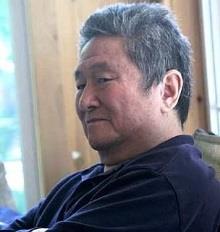
|
Yan Huai (閻淮 Independent Scholar), served in the Central Organization Department 獨立學者,曾 任職於中組部和法國、新 加坡智庫。
|

|
Yang Zi (羊子),political activist, writer, widow of Wang Ruowang. 作家,民主人士, 王若望夫人。
|
|

|
Yao Cheng (姚誠 former staff at the Chinese Navy headquarters)前海軍司令 部中校參謀,現在《中國 婦權》任職。
|
  
|
Ye Ning (葉寧 Attorney),紐約 執業律師,經手許多著名大 案。
|
|

|
Yi Gai (易改 Executive Director of the National Committee of the Chinese Democratic Party)中國民主 黨全委會執行長。
|

|
Yu Luowen (遇羅文 Political Activist),與哥哥遇羅克、妹 妹遇羅文共為中國民運先 鋒。
|
15
|

|
Zhang Jing (張菁 Founder of NGO Women Rights in China)《中國婦權》創辦人 和執行長。
|

|
Zhang Boshu (張博樹 Visiting scholar at Columbia University and former research fellow at CASS).哥倫比亞大學訪問學 者,前中國社科院哲學所研 究員。
|
|

|
Zhao Yan (趙岩)former research for The New York Times in Beijing 前《紐約時 報》北京站研究員,時評 家和海外維權運動領導人 物。
|

|
Peng Tao(彭濤) columnist 德國 明斯特大學政治學碩士、博 士(Dr. phil.)《中國之路國 際研究會》研究項目負責人, 德國北威州行政管理學院訪 問學者.
|
16
中國民主論壇 第五屆研討會〈纽约國際會議〉会议规则
1. 会议举办单位为中国民主论坛(主办)、紐約城市大學研究生中心政治系(承办)、北京之春 (承办)。
2. 三天会议由与会人、演讲人、主持人、特邀嘉宾通力合作共同完成。
3. 与会人、演讲人、特邀嘉宾由会议举办单位联合邀请。
4. 会议主持人由举办单位酝酿协商选定。
5. 为使会议进行顺畅,希望所有参加会议人遵守会议规则,保持会场融洽气氛,对于不同意见和 观点持理性包容的态度。
6. 主持人掌控会议进程,有权指定演讲时间计时人,及时提醒演讲人演讲所剩时间,以便演讲人 结束演讲;有权根据会议进程实际情况灵活调整演讲人顺序;有权并且应该在演讲人发言时间结 束时刻终止演讲人的演讲。主持人同时有权根据演讲内容与会场气氛对照终止或者延长演讲人的 演讲。
7. 演讲分成专题演讲和即兴发言两种。专题演讲在时间段上有 15 分钟和 10 分钟。会议希望演讲 人与听众产生互动,演讲人应该除了将演讲内容在规定时间段完成,并且留有时间 3-5 分钟不等 与听众进行问答。即兴发言人发言时间根据时段不同限定在 3 分钟和 5 分钟。
8. 演讲人发言时间在不同时段发言时间不等,演讲人应该遵守会议许可的规定时间内完成演讲内 容。如果在规定时间内不能完成演讲内容,也应该遵从主持人的会议程序终止演讲。
9. 与会者应尊重演讲人的思想贡献,即使观点相左也应保持包容理解的态度,可以在提问时间与 演讲人就演讲内容进行互动和交流;与会人应尊重主持人对会场气氛的控制和调节,尊重并且服 从主持人的临场决断。
本次会议举办单位感谢所有人的通力合作,完成对中国当前政治局势的研讨和分析,这一举办会 议的初衷,以期对未来中国的政治演变朝正向发展做出贡献。
|

